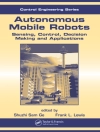Soft computing, as opposed to conventional "hard" computing, tolerates imprecision and uncertainty, in a way very much similar to the human mind. Soft computing techniques include neural networks, evolutionary computation, fuzzy logic, and chaos. The recent years have witnessed tremendous success of these powerful methods in virtually all areas of science and technology, as evidenced by the large numbers of research results published in a variety of journals, conferences, as weil as many excellent books in this book series on Studies in Fuzziness and Soft Computing. This volume is dedicated to recent novel applications of soft computing in communications. The book is organized in four Parts, i.e., (1) neural networks, (2) evolutionary computation, (3) fuzzy logic and neurofuzzy systems, and (4) kernel methods. Artificial neural networks consist of simple processing elements called neurons, which are connected by weights that may be adjusted during learning. Part 1 of the book has seven chapters, demonstrating some of the capabilities of two major types of neural networks, i.e., multiplayer perceptron (MLP) neural networks and Hopfield-type neural networks.
Lipo Wang
Soft Computing in Communications [PDF ebook]
Soft Computing in Communications [PDF ebook]
Achetez cet ebook et obtenez-en 1 de plus GRATUITEMENT !
Langue Anglais ● Format PDF ● ISBN 9783540450900 ● Éditeur Lipo Wang ● Maison d’édition Springer Berlin Heidelberg ● Publié 2013 ● Téléchargeable 3 fois ● Devise EUR ● ID 6376650 ● Protection contre la copie Adobe DRM
Nécessite un lecteur de livre électronique compatible DRM












